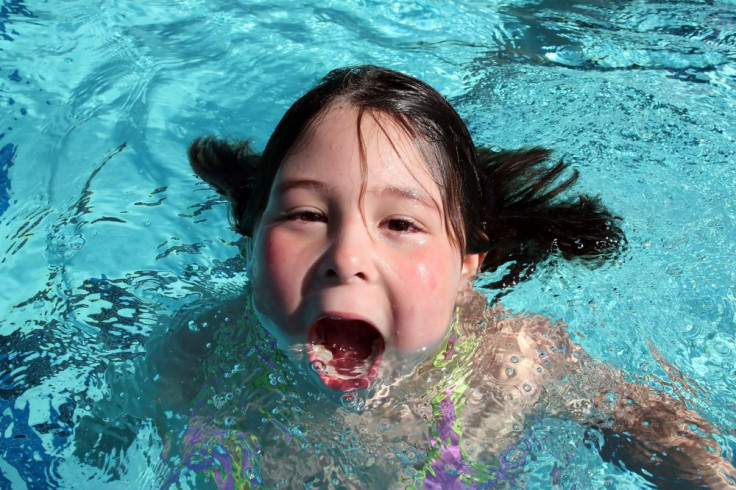Swimming Water Teeming With Bacteria, Parasites; Just Because It Has Chlorine Doesn't Mean It's Clean

Before you jump in the water at the pool or beach, you might want to make sure your mouth is closed. The Wake Forest Baptist Medical Center reports that water populated with young children can be a habitation for water-borne infections.
“Warm, shallow water and kids in swim diapers (which don’t do a good job of containing feces) can create a perfect breeding ground for water-borne infections, even though the water is chlorinated. The best way to prevent young children from getting sick is to keep them from swallowing that water,” Dr. Christopher Ohl, Professor of Infectious Diseases and medical director of communicable diseases for the Forsyth County Health Department said in a Wake Forest Medical Center report.
Dr. Ohl also advises not to drink from freshwater lakes or streams because mammals drink and urinate there. The bacterium leptospirosis can be lurking around. The infection caused from this bacterium can give you headache, muscle aches, and fever.
A dangerous organism, Naegleria, a deadly brain-eating amoeba can be found in fresh water ponds and streams. Jumping feet first into water infected with Naegleria can cause the amoeba to enter your nose. According to the Centers for Disease Control and Infection (CDC), once the amoeba enters your nose, it travels to the brain and causes primary amebic meningoencephalitis, a brain infection that is almost impossible to treat and usually fatal. The good news, is that any drinking water containing Naegleria cannot infect you.
In an article, the CDC said that there has been an increase in diarrheal illnesses caused by untreated and contaminated water. The article suggests that you take a shower with soap and water before swimming; change diapers in a bathroom, not at poolside; and wash your hands after both using the bathroom and changing diapers. Dr. Ohl also recommended that children with any gastrointestinal illnesses stay away from pools and water parks to prevent contamination of the water. He also advised people to not drink any untreated water, such as that from streams and lakes, even if it looks clean, because wild animals drink from the same supply, and may contain pathogens.
So, if you want to take a summer dip, the beach or any other place with salt water might your best bet, according Dr. Ohl. Salt water is considered the safest water as far as bacteria goes, but Dr. Ohl still cautions people to avoid the water if they have any open wounds, in order to prevent infections.



























